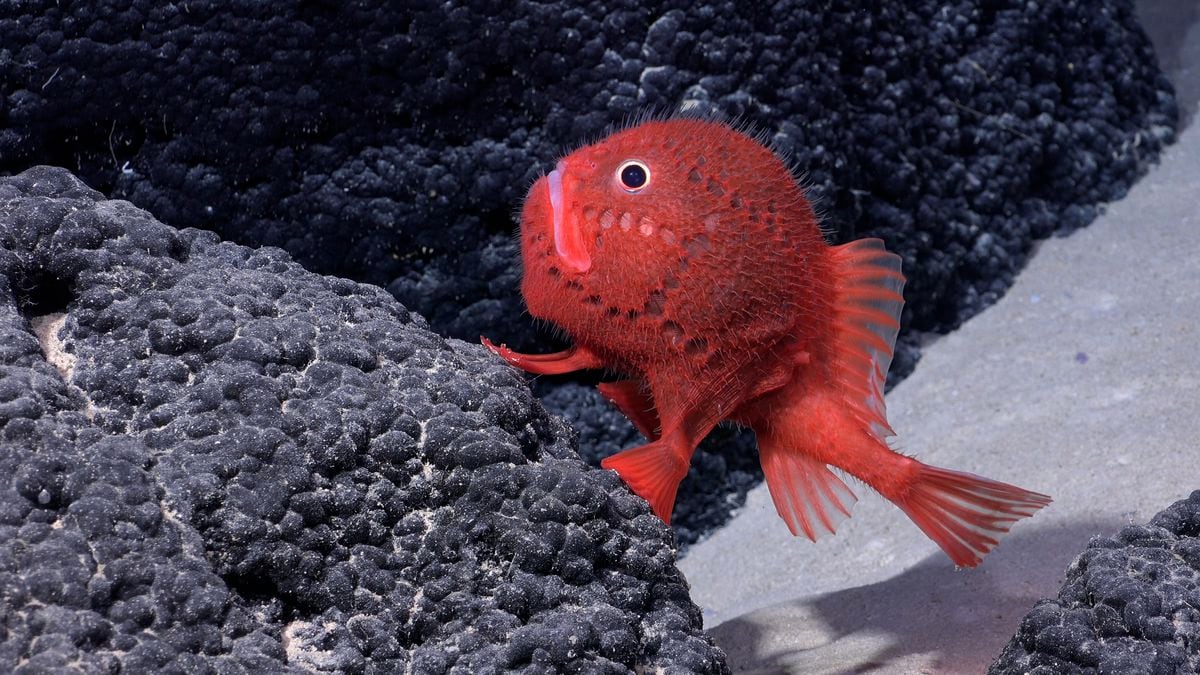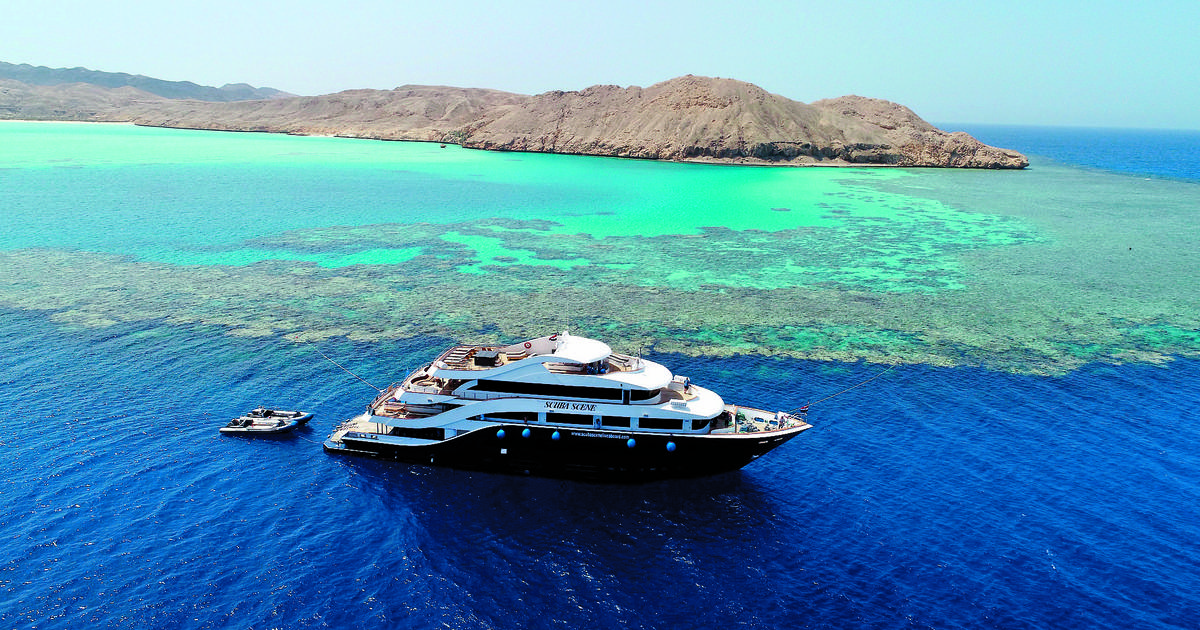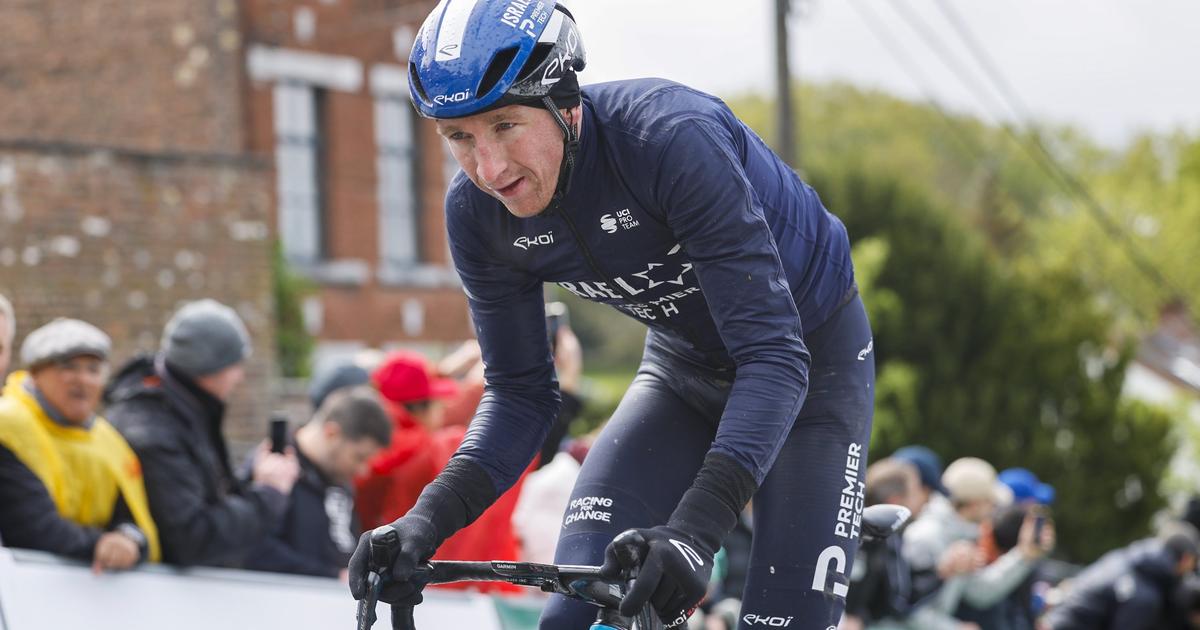Jennifer Wendland dives 100 meters with one breath: "There is no room for thoughts"
Created: 2022-10-04Updated: 2022-10-04 5:23 PM
By: Nico-Marius Schmitz
Deep down: Jennifer Wendland © Luke Coley
More than 100 meters deep?
That's a breath for Jennifer Wendland.
The 36-year-old, world champion in apnea diving, in an interview with our newspaper.
Jennifer Wendland is one of the best apnea divers in the world.
The 36-year-old secured overall victory at the World Championships in Honduras.
Wendland is the world record holder and has already dived 117 meters with just one breath.
The sportswoman talks to our newspaper about drunk feelings under water, the art of relaxation and the darkness.
Ms. Wendland, congratulations on the World Cup. How was the time in Honduras?
My trip to Honduras started with Corona.
I lay in bed for the first ten or twelve days.
After a short training period, the World Cup started.
But somehow it worked out very well (laughs).
I don't know if it was because I was able to rest for so long.
I finished first, second, third and fourth in the various disciplines and that's how I secured the overall ranking.
How does it feel to be the best in the world?
First of all, you are just happy about the beautiful dive.
It takes a while before you realize that you are a world champion. After your dive you get a white card from the judges, but the entire dive is watched again on video.
Until then during the day the message comes that no error was found on the camera either, you wouldn't believe it anyway, because something can always happen.
World champion and overall winner: Jennifer Wendland © Private
During a dive you had slight problems, spoke of an anaesthetic. Can you explain that in more detail?
It was the last dive where I became world champion.
The deeper you go, the higher the ambient pressure.
At a depth of 100 meters you have about 11 bar of pressure.
As a result, the gases in the blood dissolve better than on the surface.
That's nice with oxygen, but not so nice with other gases like CO2 or nitrogen because they are also anesthetic gases.
Deep down, that's the feeling of being drunk.
When it gets more extreme, one can also feel disoriented and sleepy.
You then have to fight against making it to the surface anyway.
At the end of the dive I also noticed that the oxygen was running out.
also read
Will Verstappen lose his world title?
FIA investigates possible violation
Ex-athletics star (50) and Kimmich buddy is already planning his own funeral
Negative thoughts use too much oxygen.
If I found that creepy, I wouldn't get that deep
Jennifer Wendland
What's going through your head?
You are fully focused on what you are doing.
There is no room for thought - not during the whole dive.
When you let your mind wander, mistakes creep in.
And there can be fear and excitement.
If I'm down and then think: "Oh, if I make it up now, I'll be world champion" that would trigger a lot of stress, which would use up oxygen again unnecessarily.
I always want to be focused on the here and now.
We train this in the body and the head with lots of visualizations and repetitions.
The body automatically needs to know what to do when you get tired.
After the World Cup you were drained, you lost your energy. At a World Cup you are close to the maximum of what you can achieve.
It's just very exhausting emotionally, mentally and physically.
And Corona has also made my regeneration time longer.
Before Corona I recovered from a dive within 24 hours, now it was at least two days.
You have always been connected to the water. Before diving, it was underwater rugby.
Underwater rugby was a blast too.
But I've noticed that holding my breath calmly is more my thing than holding my breath aggressively like in rugby.
It's also a lot of fun, but it's associated with bruises (laughs).
Freediving is more meditative.
Holding your breath in underwater rugby is associated with stress.
The first thing I had to get out of my head was that during freediving there were no more opponents swimming around who wanted something from me.
They can hold their breath underwater for up to seven minutes. Have you always been deeply relaxed?
Relaxation has to be learned at the level we need in freediving.
I find myself getting more relaxed every year.
Three years ago I already thought: It couldn't be any more relaxed.
But every year I get more relaxed.
Just as you can train your biceps, you can train yourself to be 100 percent relaxed in the water with mental exercises.
There are also special exercises for the diaphragm.
The stretching exercises are especially important for deep diving.
In the depths, our lungs are crassly compressed by the pressure, they are then as big as a fist.
If you are normally flexible, the lungs would not take it, blood would be in the lungs and they would rupture.
The diaphragm, the intercostal muscles and the abdominal muscles, i.e. all muscles involved in breathing, must be totally relaxed and flexible with us.
If I make jerky movements in the depths and tense the abdominal muscles, it can be dangerous.
But it's a long way to be so relaxed.
I'm in the water three or four times a week.
A lot of swimming, working on technique and holding your breath.
I cycle a lot because good leg muscle endurance is also helpful for freediving.
There is also strength training, the way out of the depths is exhausting.
Pressure equalization training for the ears is also very important.
If you don't equalize the pressure at depth, the eardrum ruptures.
You've already dived 117 meters deep. Isn't that a little creepy?
Negative thoughts use too much oxygen.
If I found that creepy, I wouldn't get that deep.
Of course I'm aware that it's getting darker.
But that doesn't mean that the darkness will eat me right away, it won't hurt me.
For us it is intuitive that darkness is associated with fear.
But that's actually totally absurd, you have to work on it mentally.
How does such a dive feel for you?
I'm not drifting away mentally.
I am aware of everything.
I can feel the temperature changing.
I feel on my hands when a current comes up.
You are very sensitive to the smallest changes in your surroundings and in yourself. You can really feel whether every muscle is really relaxed or whether there is still a twitch in your foot somewhere.
It's a wonderful feeling when you have everything under control, but at the same time feel infinitely free.
There is a picture where you dive among sharks. How important is the underwater world to you outside of competitions?
You can leave all the stress of everyday life on the surface.
All the problems don't matter down there.
It only gets sad when you see how much of mankind has already been destroyed.
Nevertheless, the water world is still breathtaking and therefore so valuable and worthy of protection.
Interview: Nico Marius Schmitz















